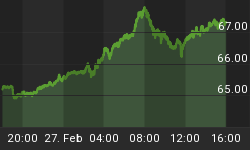Figure 1 is a weekly chart of the SP500. The indicator in the lower panel is a composite that looks at the relative strength of the 9 SP500 sectors: Materials, Consumer Discretionary, Consumer Staples, Energy, Financials, Healthcare, Industrials, Technology and Utilities. The indicator has been smoothed with a 39 week exponential moving average. When looking at the data, which goes back to 2001, we have noted in past articles how effective the indicator was at identifying intermediate term market tops. In other words if an investorwas patient, they could get better entry points.
Figure 1. Relative Strength Indicator
![]() LargerImage
LargerImage
In mid June, we noted that the indicator was in the "Danger Zone". Shortly thereafter we provided data to these observations; when the indicator reached these extreme levels, there were always better points of entry. In late July, the extreme reading was "Pointing to a Market Top". The indicator started to "Rollover" last week, and this week it looks like the top is in! The indicator still remains at a high value. Our interpretation has been the same for over 2 months now: our relative strength indicator remains consistent with a market top, and the indicator still continues to act within the realm of prior instances when it was extreme. Once again, we are closer to the end of this rally than the beginning.















